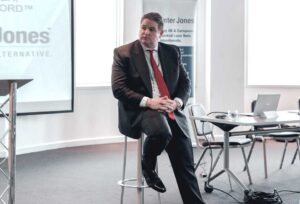SASC to launch new renewable fund in 2022 to deliver community energy project

As world leaders meet in Glasgow for COP26 to debate how to tackle climate change, Social and Sustainable Capital, a leading social investor highlights the key role innovative community energy projects are playing in reducing carbon emissions and building more resilient communities. SASC also announces plans to launch a ‘next generation’ renewable fund to finance further community projects in 2022.
COP 26 will prioritise reaching agreement on global net-zero policies. The most critical is the need to limit the increase in global temperature to 1.5 °c. The Intergovernmental Panel on Climate Change (IPCC) said in August there is less than two decades left to achieve this. Discussions will also focus on how to protect communities and natural habitats damaged by rising temperatures, as well as how to mobilise finance around this goal.
Ben Rick, CEO, SASC says, “The COP26 summit will refocus attention on the goals of the Paris Agreement and the UN Convention on Climate Change, and the decisions made could lead to big changes to our everyday lives.
“As a social investor, SASC has focused on energy generation since we launched in 2014 and we see renewable energy as being critical for our future. With the energy crisis so evident at the pumps this Autumn, it is clear the average consumer has very little control over prices and community projects can change this. We have invested over £68m in successful renewable projects of all sizes and announce plan to launch a new renewable fund to finance further projects in 2022. We see renewable projects benefitting communities in so many ways – from reducing carbon emissions, to ensuring communities are less reliance on the national grid, have more control and can generate profits that will benefit their local community.”
Some of the project SASC has supported include financing the build of wind turbines and partly funding a major renewable energy build for a council that wanted to generate its own power.
Its work has addressed two core beliefs:
1) renewable energy such as wind and solar are central planks in a net zero strategy
2) local communities should benefit from a decentralised energy market
Ben Rick says its projects have resulted in profits which have funded local services, schools, foodbanks, and voluntary schemes. Local people allocate the money because they are best placed to understand the need.
Nearly all the project address fuel poverty, with initiatives helping to reduce energy bills or to provide grants to support networks.
Fuel poverty is a complex problem linked to broader issues of social inequality. It is also a killer. Age UK estimates that 25,000 older people die each year because of the cold weather[i].
Three key factors help to cause fuel poverty: low income, high fuel prices and the growing energy requirements of a household. The government calculates an annual fuel poverty gap. By empowering a local area with a community fund, they can directly target those most in need.
Ben concludes, “The COP26 goal is for leaders to commit to their promise to spend trillions of dollars on climate change. The transition to clean energy will affect us all and we believe that for this to truly transition, communities must play a role.
Through its funds, SASC continues to support local communities to take control of local energy generation and we look forward to launching our next generation renewable fund that will have community at its core. We remain committed to staying at heart of funding for this crucial, clean and empowering sector.”






